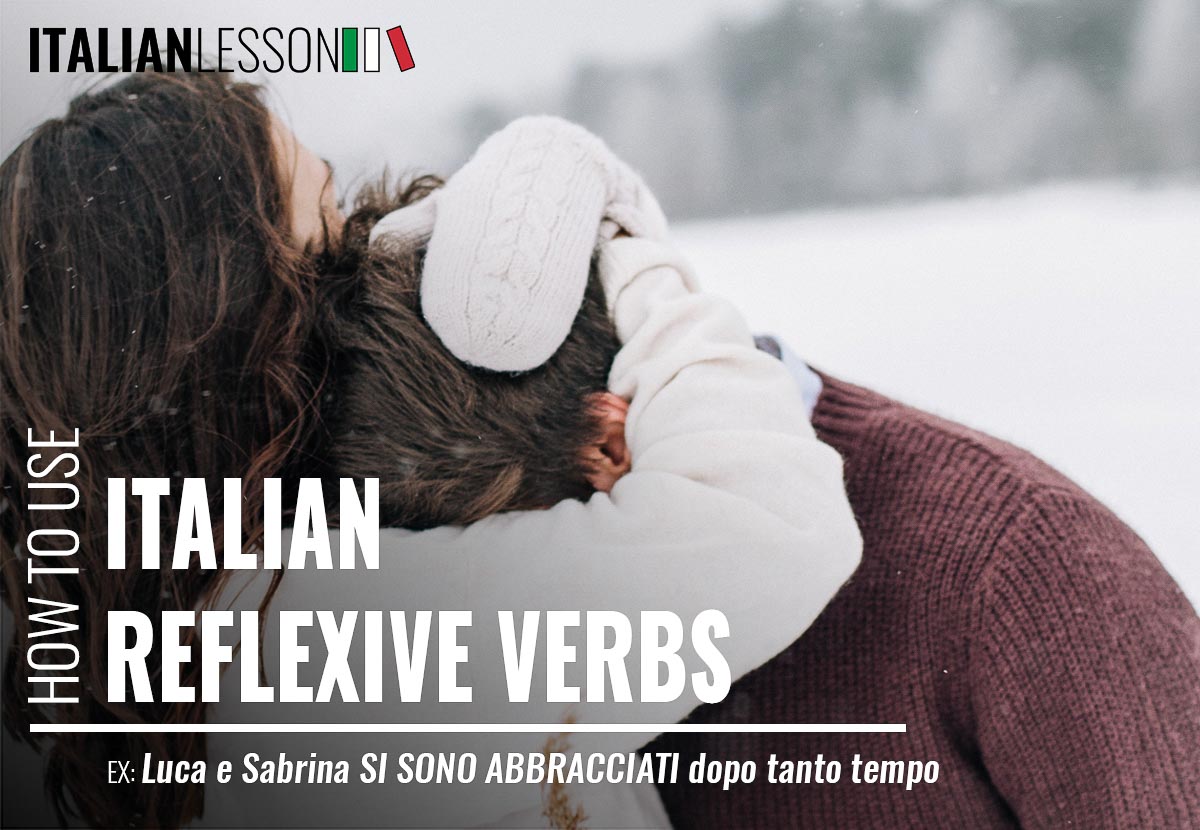
Are you ready to learn a new rule of Italian grammar? Thanks to this article you will add a new term to your Italian vocabulary, that is: RIFLESSIVO because today we are talking about Italian reflexive verbs!
Even if the double S won’t facilitate your Italian pronunciation of this word, don’t worry, over time it will! And now let’s get started!
First of all, what are Italian reflexive verbs?
Reflexive verbs describe an action that refers directly to the subject who performs it. The infinitive of a reflexive verb is always followed by the Italian reflexive pronoun SI which indicates, in fact, that it is a reflexive verb.
Here is the links to learn more about Italian pronouns
https://italianlesson.it/how-to/italian-pronouns/
The Italian conjugation of a reflexive verb is composed as follows:
- subject + reflexive pronoun + verb conjugation (which can vary according to the tense being conjugated).
Let’s have a look at the conjugation of an Italian verb in the reflexive form
| LAVARSI | TO WASH (Reflexive form) |
| Io mi lavo Tu ti lavi Egli / Ella – Lui / Lei si lava Noi ci laviamo Voi vi lavate Essi / Esse – Loro si lavano | I wash myself You wash yourself He / She / It washes himself / herself / itself We wash ourselves You wash yourselves They wash themselves |
While in Italian the reflexive pronoun is interposed between subject and verb, in English it is placed after the verb.
Sometimes, however, some Italian reflexive verbs can be translated in a different way into English, as in this example:
Lui si chiama Luca / His name is Luca.
In Italian grammar there is also another type of reflex. verb called “reciprocal“.
It is defined in this way because the action to which it refers does not concern a single subject but more than one person, as with these Italian verbs:
- ABBRACCIARSI (to hug each other)
- SPOSARSI (to get married)
- AMARSI (to love each other)
- CONOSCERSI (to know each other)
As you can see, these verbs in English add the words EACH OTHER while in Italian only the reflexive pronoun SI is added.
How about some examples?
Marco e Sabrina si sono abbracciati dopo tanto tempo. / Marco and Sabrina hugged after a long time.
Loro volevano sposarsi da due anni. / They’ve been wanting to get married for two years.
Quella coppia si ama da 30 anni. / That couple has been in love for 30 years.
Io e Marta ci siamo conosciute tre anni fa. / Marta and I met three years ago.
As you can see, an Italian reflexive verb is not always used in the same way as in English!
Go on!
How do Italian reflexive verbs “behave” in compound tenses?
They are formed with the auxiliary verb “to be”
Loro si sono svegliate tardi / They woke up late
Modal verbs, on the other hand, “upset” everything!
Examples with modal verbs:
Mi sono dovuto lavare in 5 minuti / I had to wash myself in 5 minutes
Ieri sera ho dovuto lavarmi tutti i piatti senza l’aiuto di nessuno / Last night I had to wash all the dishes without anyone’s help
Here’s another insight
https://it.wikipedia.org/wiki/Verbo_riflessivo
That’s enough for today, “recharge the batteries” and let’s go!
